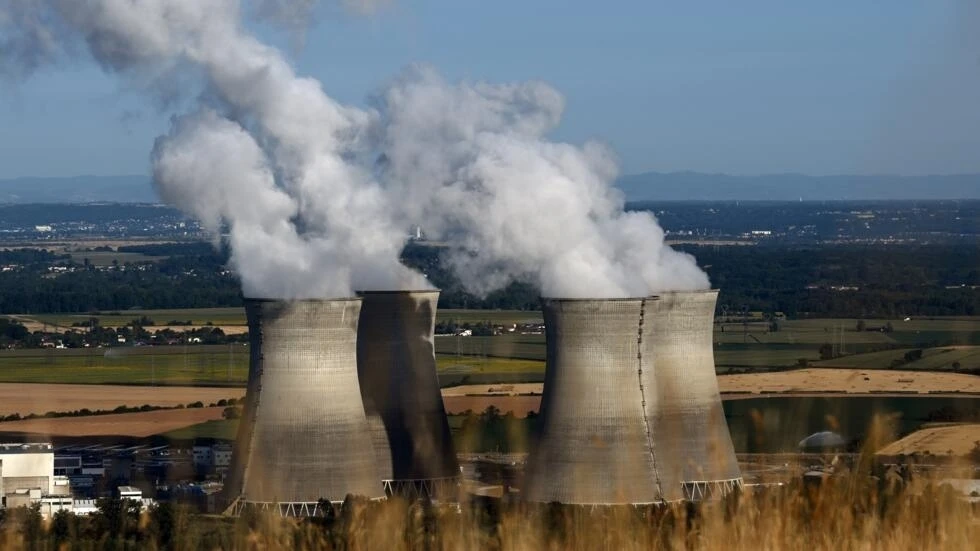Nuclear's EU comeback on show at Brussels summit

Stay tuned with 24 News HD Android App

Promoting nuclear power was long taboo in Brussels, but a high-profile international summit Thursday sent loud and clear the message that atomic energy -- now touted by its champions as key to fighting climate change -- is back.
Gone are the days when Berlin's anti-nuclear stance set the tone: in the past two years atomic pioneer France has been spearheading a drive to establish nuclear as a key source of carbon-free energy in the EU.
Organised by the International Atomic Energy Agency (IAEA), the Brussels summit followed on from last year's COP28 climate talks, at which 22 nations backed a call to triple the world's nuclear energy capacity by 2050.
"This is a fight where we have to use all the available, dispatchable, CO2-free energy sources for the common challenge," IAEA chief Rafael Grossi told the summit bringing together more than 30 countries, from Europe but also the United States, China and Brazil.
In a joint declaration, the states committed to "work to fully unlock the potential of nuclear energy," including by mobilising public and private finance to meet the sector's colossal investment needs.
Inside the European Union, that message is being carried by a "nuclear alliance" of a dozen countries including France, launched last year with a view to weighing on policy -- with a string of successes so far.
"For the past four years, we have been sowing seeds -- they began to grow, and now we are reaping the harvest," said EU lawmaker Christophe Grudler, from Emmanuel's Macron's centrist Renew Europe party.
Back in 2021, European Commission chief Ursula von der Leyen made headlines by arguing the EU needed nuclear as a "stable source" of energy -- and Brussels went on to label it among its list of "sustainable" investments.
By last June, Paris had secured a change to EU renewable energy rules to recognise nuclear power as a way to produce low-carbon hydrogen.
In December, EU states and lawmakers reached a deal on public aid for investment in existing nuclear power plants, then in February on cutting red tape for nuclear as a "net-zero" emission technology.
Finally, Brussels included nuclear in its roadmap to reaching its 2040 climate goals, and in February it launched an industrial alliance to speed up the development of small modular reactors (SMRs).
'More outspoken'
With 100 reactors currently in service across 12 countries, nuclear accounts for about a quarter of electricity produced in the EU, and almost half its carbon-free power.
Around 60 reactors are at various stages of planning or construction, one third of them in Poland.
Massimo Garribba, deputy director general at the European Commission's energy department, said this week he had seen EU members become "much more outspoken" in support of nuclear.
The French-led alliance is now pushing for "a comprehensive and enabling European framework for nuclear development" -- including its financing.
And its members want nuclear and renewables put on an equal footing without "discrimination" in the bloc's goal of becoming carbon neutral by 2050
Despite the EU's more accommodating stance, the nuclear vs. renewables debate is still fuelling a standoff between Paris and Brussels.
France failed to meet EU-set renewable targets in 2020, but is refusing to make amends -- arguing that its carbon footprint is low enough thanks to nuclear.
"France will not be paying penalties," warned its economy minister Bruno Le Maire this month. "These goals of having this many wind turbines, that many solar panels -- that's a Europe that we don't want any more."
'Theoretical'
Likewise when it comes to a new French energy strategy that includes no goals for renewables: Brussels wants it to set targets by June, with at least 44 percent of renewables by 2030, against 20 percent now.
France's stance is anathema to many environmental activists -- and to EU countries like Spain or Germany which are part of a "Friends of Renewables" alliance within the bloc.
"We have never thought about mixing or exchanging renewable and nuclear," Spanish energy and climate minister Teresa Ribera said in December.
While nuclear plants generate almost no greenhouse gases, critics highlight that, compared to renewables, they can take decades to build, are expensive and generate hazardous waste.
Sven Giegold, a German state secretary for the economy, said the promise of nuclear remains largely "theoretical" with many projects at planning stage -- making the case instead for "competitive" renewables.
Rejecting that argument, the centrist Grudler said SMRs will be a reality by 2035, and new generation EPR reactors by 2040.
"That is still a way off, but it's now that we need to create the framework and the financing plans," he said.
